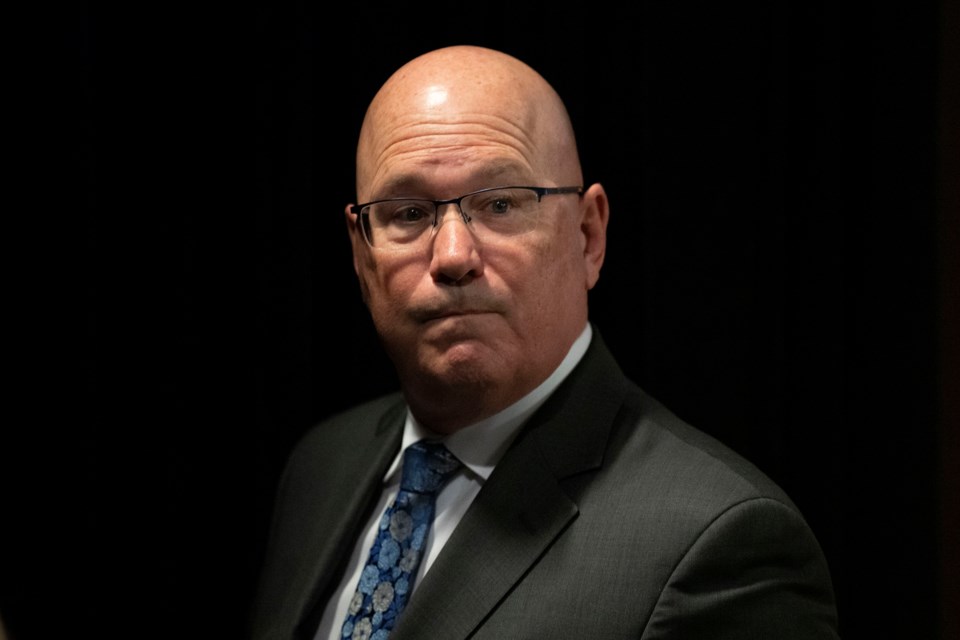Despite the lingering Greenbelt scandal, Ontario's municipal affairs and housing minister was at ease on Tuesday in front of civic leaders gathered in London for the Association of Municipalities of Ontario annual conference.
The day before at the conference, Ontario Regional Chief Glen Hare got a hearty round of applause from delegates when he called on Steve Clark on Municipal Affairs and Housing Minister Steve Clark to resign over his handling of the Greenbelt.
Speaking in a standing-room-only conference hall the next day, Clark, a former mayor of Brockville, proved he still owns AMO.
He didn't address the Greenbelt, instead making a couple of announcements.
For one, the regional facilitators who could decide the fates of Durham, Halton, Niagara, Simcoe, Waterloo and York regions will be appointed by Sept. 11, he said.
"I know those of you who are from these communities have been waiting too long already for this announcement, and I appreciate your patience," Clark said.
Affordable housing will also get an official definition, he added.
His government previously exempted development charges, paid by builders to municipalities, for affordable housing projects. In the fall, a new bill from the Progressive Conservatives will define these projects to clarify which should be exempted and which should not, Clark said.
The definition will take local income levels into account, he said.
"That means the definition used to determine eligibility for these discounts and exemptions would reflect the ability of local households to pay for housing, and would reflect the reality of different housing markets across Ontario," he said.
The government has declined to define affordable housing as costing no more than 30 per cent of one's income, which is the closest thing that currently exists to a universal definition. Bill 23 uses a definition of 80 per cent of the market rate, which advocates say isn't really affordable when the market is as hot as it has been.
Municipalities have been frustrated by the lack of clarity.
"We know the concerns municipalities have raised about the draw on our budgets that is in Bill 23, the lack of definition around what affordable means, so we can't even plan for that," said Burlington Mayor Marianne Meed Ward at an AMO conference session on provincial housing framework earlier on Tuesday.
Clark also made some demands of Ottawa that the crowd ate up. He called on the Trudeau government to defer HST charges on new, large-scale, purpose-built rentals; to guarantee that at least 10 per cent of the Housing Accelerator Fund will be reserved for small, northern and rural communities; and to increase Ontario's share of federal housing funding by $480 million.
Ontario's housing minister also noted the provincial government will host a housing forum in November with municipal associations and "other key stakeholders" to discuss the latest provincial housing plan.



